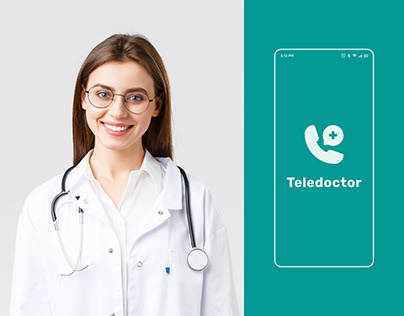Discovering the Conveniences and Difficulties of Teledoctors in Modern Health Care
As the health care landscape develops, teledoctors have arised as a crucial part in linking spaces in medical accessibility and performance. While they use the guarantee of reaching remote areas and lowering functional costs, the trip is not without its obstacles. Privacy problems, the electronic divide, and cybersecurity dangers position substantial difficulties that should be resolved to harness their complete potential. Just how can the health care industry equilibrium these benefits with the integral difficulties? This conundrum welcomes a deeper expedition into the transformative duty of teledoctors fit the future of healthcare shipment.
Expanding Accessibility to Treatment
Telemedicine has become a critical technology in modern health care, considerably increasing accessibility to look after diverse populaces. By leveraging digital technology, teledoctors have changed the typical health care distribution model, making it possible for individuals in underserved or remote areas to get prompt medical examination. This advancement is particularly helpful for people staying in country areas, where the shortage of medical care facilities and experts often results in postponed or inadequate treatment.
Teledoctors contribute in linking the gap created by geographical barriers. Through online assessments, individuals can access a vast array of medical care solutions without the need for extensive traveling. This is specifically beneficial for those with mobility issues or chronic conditions requiring constant medical focus. Moreover, telemedicine boosts connection of treatment by allowing routine follow-ups and tracking, consequently improving client results.
The integration of teledoctors right into health care systems likewise supports the administration of public wellness situations by helping with fast feedback and triage. Throughout pandemics, for example, online examinations reduce the problem on physical healthcare centers, minimizing exposure threats for both individuals and healthcare companies. As telemedicine continues to evolve, it promises to improve the landscape of health care ease of access, making it extra inclusive and efficient.
Cost-Effectiveness of Teledoctors
The cost-effectiveness of teledoctors is a significant factor driving their prevalent adoption in medical care systems. By minimizing the need for physical facilities and in-person visits, teledoctors provide an even more inexpensive choice to traditional health care distribution. This model permits doctor to reduced operational expenses, such as those connected with maintaining physical offices and using comprehensive on-site team. teledoctors. Consequently, these cost savings can be handed down to patients in the form of minimized appointment fees, making health care extra available to a wider populace.
Additionally, teledoctors help with an extra reliable use healthcare resources by reducing unnecessary emergency room visits and health center admissions. People can access prompt appointments for small disorders or follow-up treatment, which assists to minimize the problem on overstretched medical care facilities. This efficiency not just brings about set you back financial savings for medical care carriers but additionally lowers the economic stress on clients who could otherwise encounter pricey health center expenses.
Moreover, teledoctors can help in managing persistent illness a lot more efficiently by providing regular tracking and timely treatments. This positive method can prevent complications, therefore minimizing long-term therapy expenses. Overall, teledoctors offer a practical option to the escalating prices of health care, while useful content keeping high quality treatment shipment.
Enhancing Patient Convenience
While cost-effectiveness plays a crucial function in the surge of teledoctors, improving patient ease stands as one more engaging advantage of this medical care design. With the assimilation of teledoctors, clients can bypass the commonly lengthy procedure of scheduling and going to in-person consultations. This design eliminates the requirement for traveling, decreasing time invested en route and waiting rooms, consequently using significant time cost savings for people. Particularly for those with wheelchair concerns or residing in remote areas, teledoctors supply an important link to treatment that might otherwise be unattainable.
In addition, teledoctors use flexible scheduling, permitting clients to prepare assessments at times that ideal suit their professional and personal dedications. This flexibility is vital for people balancing demanding job timetables or family obligations, ensuring that health care can be integrated perfectly into their lives. In addition, the ability to gain access to doctor from the comfort of one's home can result in increased individual involvement and adherence to therapy strategies, as the obstacles to seeking care are reduced.
The benefit provided by teledoctors not only enhances the client experience however additionally adds to a more effective and receptive medical care distribution system, inevitably sustaining far better wellness end results.
Addressing Personal Privacy Worries
In the middle of the expanding fostering of teledoctors, personal privacy worries arise as a considerable consideration. As medical care significantly depends on electronic systems, making sure the privacy of individual info becomes paramount. The digitization of medical records and making use of telecommunication modern technologies require robust safety steps to safeguard delicate information from unauthorized access and violations.
Doctor have to stick to strict guidelines, such as the Health And Wellness Insurance Coverage Portability and Liability Act (HIPAA) in the United States, which establishes nationwide requirements for safeguarding clinical details. Conformity with such guidelines is important in maintaining person trust fund and guaranteeing their data is handled responsibly. Encryption of information, protected pop over to this site communication networks, and routine audits are a few of the steps that can be implemented to boost data defense.
Cybersecurity dangers are advancing, and medical care companies must remain attentive to brand-new vulnerabilities. Furthermore, enlightening both patients and healthcare suppliers concerning best practices in data privacy is essential.
As teledoctors end up being a lot more indispensable to medical care delivery, attending to personal privacy worries is vital to guarantee both the effectiveness and dependability of these solutions.

Navigating the Digital Divide
Bridging the electronic divide is a critical obstacle in the prevalent adoption of teledoctors. The benefits of teledoctors-- such as increased ease of access and comfort-- stay unreachable for several people who might most benefit from them.
Initiatives to minimize this divide require a multi-faceted strategy. Policymakers need to focus on infrastructure advancement to enhance internet gain access to in underserved locations. Additionally, campaigns to fund click here for info innovation for low-income homes can play a critical role in making certain fair gain access to. Healthcare service providers and community companies ought to work together to provide electronic literacy programs, empowering people to navigate telehealth systems confidently. Moreover, making easy to use user interfaces can further boost availability for all demographics, particularly the senior.

Conclusion
The assimilation of teledoctors into modern-day healthcare supplies significant advantages, including boosted access to care, cost-effectiveness, and improved patient comfort. However, difficulties such as personal privacy concerns, the electronic divide, and cybersecurity threats should be resolved to optimize these advantages. By applying robust data defense steps, enhancing electronic proficiency, and guaranteeing safe technical infrastructure, the capacity of teledoctors can be totally understood, promoting equitable health care delivery and transforming the health care experience for all people.

Comments on “Teledoctors vs Conventional Health Care: Which is Better?”